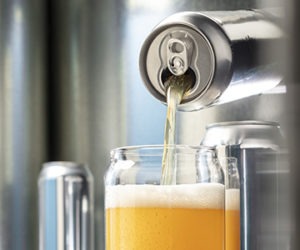Electric Homebrew: Go gas free
There are more than a few ways to brew a beer, and one of those ways is with an all-electric homebrewery. if you are considering moving away from propane, take some advice from two dedicated all-electric homebrewers.
Kal Wallner, Author/Creator of The Electric Brewery (www.TheElectricBrewery.com)

There are many benefits to brewing with electricity instead of gas. It has easier precise control of temperature, safer for indoor brewing (no poisonous gases, no emissions), absolutely silent (the bigger gas burners sound like jet engines), provides a much more efficient use of energy (a 5500W heating element producing ~20,000 BTUs of heat will outperform an 80,000 BTU propane burner as electric is 100% efficient. You do not lose 50-80% of heat to the atmosphere), requires no tanks to refill, cheaper to run (in most locations natural gas is 2-3 times more expensive, propane 5-10 times more expensive) and it can be easier to produce consistent beers using advanced controls in the build.
Some people will argue that the up-front cost of going 100% electric is more expensive than gas. This is not true if you compare the cost of a full-blown electric setup with a gas setup that also has advanced controls. Gas only has a lower cost of entry if a simplified setup is implemented, such as a turkey fryer for the boil kettle and a picnic cooler for the mash tun. Once advanced controls are included the up-front costs are similar. Also, in many locations going electric will save you money over the long run.
I have noticed that newer electric brewers sometimes sacrifice safety either on purpose (to save money) or unknowingly because they are not familiar with electricity. Electricity and water can be a dangerous combination if not done safely. Follow the electrical code for your area when designing your electric setup and use parts that are rated correctly. Make sure all components of your electric setup are properly grounded (including the kettles) and always use a ground fault interrupter to protect the brewer. Electric brewing is very safe when done right, possibly even safer than gas as there is no open flame or poisonous gas emissions. When in doubt, refer to a qualified electrician for help.
The world is full of electric brewers. Joining a local homebrew club is a great way to see some other electric setups and choose what is right for you based on your brewing process. Also, whether you choose to go gas or electric, always work out your brewing process first before choosing the equipment. Let the process drive the equipment, not the other way around.
Going all-electric opens up a realm of opportunities for the brewer from simple automation with only temperature control to complete automation including pump/valve control, motorized stirrers, and so on. Before implementing advanced features spend some time carefully thinking about the benefits you’re trying to achieve. I’ve far too often seen electric brewers build overly complex setups that at the end of the day provide little or no added benefit. The setups are often more expensive to implement and maintain, harder to clean and sometimes require even more work to use on brew day. Look at each component and ask yourself, “What benefit does this really provide me?” If it’s not clear, consider simplifying.
Brewers looking for resources to help in their electric brewery build can visit my website at www.TheElectricBrewery.com where I provide instructions on how to build an electric brewing setup. I show you what’s needed, where to get it, and how to assemble it in easy to follow steps. There’s no need to understand electrical schematics or AutoCAD drawings. Best of all it’s 100% free.
Joe Lynch, all-electric homebrewer from Kansas City, Missouri

There are several advantages of electric brewing. I’m now able to brew anytime that I feel like doing so. I can get a faster and more vigorous boil using electric rather than stove top or propane and I’ve brewed the lightest lager and the darkest stouts without one bit of scorching. (I brew all-grain and extract beers.)
The only mistake that I have made so far is that I once let the heating element run dry for a few seconds. Luckily I caught my error in time, but this is something you should be very vigilant about if you build your own system.
I had a qualified electrician look at my system before I used it, and anyone building an all-electric system should do the same. My entire system is also on its own dedicated GFIC circuit and I observe all safety concerns that a brewer should have with several gallons of a boiling liquid. I feel that electricity, if done right, is much safer than having an open flame.
My advice for a homebrewer interested in electric brewing is to do a lot of research. I wished I got paid for the amount of time I spent at the hardware store scratching my head while looking at electrical and plumbing supplies. A must read is Jeff Karpinski’s article in BYO (www.byo.com/component/resource/article/1987), and listen to James Spencer’s interview of Jeff on Basic Brewing Radio. Also, check out the Internet. You will find several YouTube videos that feature electric brewing that will give you some ideas. You can then use that information to adapt your electric brewery to fit your needs. You will see some very elaborate and complicated systems. I even found one that was fully automatic that could be controlled from another location, although that was was not for me. I like to still have a “hands on” approach so I kept mine simple.



